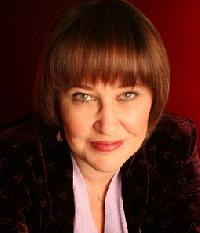Dictionary now recognizes Internet buzzwords
|
|---|
| | Sian Cooper 
France
Local time: 20:57
French to English
+ ...
In memoriam | Good - a dictionary should reflect the language, not try to model it | Jun 15, 2013 |
I think this is great. Well done China!
A dictionary is a reference document - if you don't understand something, you should be able to look it up and find out what it means in the dictionary. It is of course a major challenge to keep dictionaries up to date, to bring in new vocabulary (which may only be a passing fad) and to drop obsolete vocabulary (just when do you decide that your dictionary should not help people to understand the mediaval version of a language, that that is a sp... See more I think this is great. Well done China!
A dictionary is a reference document - if you don't understand something, you should be able to look it up and find out what it means in the dictionary. It is of course a major challenge to keep dictionaries up to date, to bring in new vocabulary (which may only be a passing fad) and to drop obsolete vocabulary (just when do you decide that your dictionary should not help people to understand the mediaval version of a language, that that is a specialist need? Is 1920s slang still relevant? etc.). Yes, within its definition, a dictionary should specifiy whether something is correct usage, vulgar, slang, incorrect by standard rules but current usage, and so on, but it should not exclude for the reason that it is not correct, if it is common usage. There is a line between the written and spoken language, and dictionaries can choose only to reflect the written language, I guess... but that line is becoming very blurred with social networking online etc.
This is something that annoys me greatly about the French approach to dictionaries. It is very Académie, français correcte oriented. Getting actual daily used language into them is a major task (spoken or commonly written). Dictionaries, especially in France, have always been an establishment-run organism, intent on expressing and accepting only the 'correct' form. This was fine while all public French (books, television, radio, papers, magazines) fell in with these rules (with the notable exception of San Antonio, a delightful revolution all to himself). The ivory tower could remain inviolate and those in it could ignore the unwashed masses and how French was actually spoken and used.
But times have changed. The television, the press, the radio - the big media - now showcase and follow the masses, not the traditional educated ruling class. Education no longer grinds grammar, spelling and correct usage into the children. The net is written-as-spoken, plus having its own language, MDR (mort de rire, the French equivalent of LOL or ROFL). Gradually the establishment is being obliged to take a path towards reflecting the actual living, evolving language, rather than attempting to impose a static, inflexible form, spoken and used only by the hegemony of the bourgoisie.
I of course do actually come from that class and am a dreadful snob about 'correct' English, but I ALSO embrace the living language. It's not an easy path! I believe, though, that the English-language (and its 'rulers') has always been more flexible than French. Or is that 'have'? ▲ Collapse
| | | | neilmac
Spain
Local time: 20:57
Spanish to English
+ ...
| The rot sets in | Jun 15, 2013 |
Whether the forms (zzz?) and acronyms quoted are true "buzzwords" is moot. And given their form on freedom of expression, I'm loath to laud China for anything to do with the internet realm, including this latest "great leap forward".
| | | | Balasubramaniam L. 
India
Local time: 01:27
Member (2006)
English to Hindi
+ ...
SITE LOCALIZER | I doubt if this will help with their English | Jun 16, 2013 |
All three words were new to me, so I would have welcomed their addition in the dictionary I use. But I doubt if that in itself would help anyone write better English. In fact, it might hinder the development of the skill of writing clear and communicative English, and push people more towards using Twitter and Facebook type of lingo by lending respectability to silly words like these. The dictionary should clearly mark such entries for what they are - distortions of normal speech introduced by n... See more All three words were new to me, so I would have welcomed their addition in the dictionary I use. But I doubt if that in itself would help anyone write better English. In fact, it might hinder the development of the skill of writing clear and communicative English, and push people more towards using Twitter and Facebook type of lingo by lending respectability to silly words like these. The dictionary should clearly mark such entries for what they are - distortions of normal speech introduced by new technology - similar to dictionaries marking slang words. This will warn off people from considering these words as standard words and using them in more serious conversations and writings.
[Edited at 2013-06-16 03:14 GMT] ▲ Collapse
| | | | neilmac
Spain
Local time: 20:57
Spanish to English
+ ...
Balasubramaniam L. wrote:
All three words were new to me, so I would have welcomed their addition in the dictionary I use. But I doubt if that in itself would help anyone write better English. In fact, it might hinder the development of the skill of writing clear and communicative English, and push people more towards using Twitter and Facebook type of lingo by lending respectability to silly words like these. The dictionary should clearly mark such entries for what they are - distortions of normal speech introduced by new technology - similar to dictionaries marking slang words. This will warn off people from considering these words as standard words and using them in more serious conversations and writings.
[Edited at 2013-06-16 03:14 GMT]
I strongly agree. I believe it's important to keep expressions of this kind where they belong and avoid promoting them as standard and acceptable for use in more formal contexts.
| | |
|
|
|
Ty Kendall 
United Kingdom
Local time: 19:57
Hebrew to English
| Urban dictionary | Jun 16, 2013 |
Isn't this what urban dictionary is for?
| | | |
neilmac wrote: Balasubramaniam L. wrote:
All three words were new to me, so I would have welcomed their addition in the dictionary I use. But I doubt if that in itself would help anyone write better English. In fact, it might hinder the development of the skill of writing clear and communicative English, and push people more towards using Twitter and Facebook type of lingo by lending respectability to silly words like these. The dictionary should clearly mark such entries for what they are - distortions of normal speech introduced by new technology - similar to dictionaries marking slang words. This will warn off people from considering these words as standard words and using them in more serious conversations and writings.
[Edited at 2013-06-16 03:14 GMT] I strongly agree. I believe it's important to keep expressions of this kind where they belong and avoid promoting them as standard and acceptable for use in more formal contexts.
With the risk of sounding too traditional, I have the same opinion. I think dictionaries should encourage the use of correct, appropriate vocabulary. They should never embrace or encourage the decay of our standards for using language.
| | | | | Urban dictionary | Jun 17, 2013 |
Ty Kendall wrote:
Isn't this what urban dictionary is for?
You couldn't have said it better! If someone wants to look up some new/obscure Internet slang, it'd make more sense for them to do a quick google search and clear up their doubts. It's not like teenagers nowadays would actually put their smartphone down, go pick up a real, physical dictionary and start browsing it furiously in search of the meaning behind "#rofl".
| | | | | Re: Feedback | Jun 17, 2013 |
SimonaM89 wrote:
neilmac wrote:
Balasubramaniam L. wrote:
All three words were new to me, so I would have welcomed their addition in the dictionary I use. But I doubt if that in itself would help anyone write better English. In fact, it might hinder the development of the skill of writing clear and communicative English, and push people more towards using Twitter and Facebook type of lingo by lending respectability to silly words like these. The dictionary should clearly mark such entries for what they are - distortions of normal speech introduced by new technology - similar to dictionaries marking slang words. This will warn off people from considering these words as standard words and using them in more serious conversations and writings.
[Edited at 2013-06-16 03:14 GMT]
I strongly agree. I believe it's important to keep expressions of this kind where they belong and avoid promoting them as standard and acceptable for use in more formal contexts.
With the risk of sounding too traditional, I have the same opinion. I think dictionaries should encourage the use of correct, appropriate vocabulary. They should never embrace or encourage the decay of our standards for using language.
As per my suggestion, the average language user and often translators totally relies on a dictionary as authoritative source of information.
| | | | To report site rules violations or get help, contact a site moderator: You can also contact site staff by submitting a support request » Dictionary now recognizes Internet buzzwords | Trados Business Manager Lite | Create customer quotes and invoices from within Trados Studio
Trados Business Manager Lite helps to simplify and speed up some of the daily tasks, such as invoicing and reporting, associated with running your freelance translation business.
More info » |
| | Wordfast Pro | Translation Memory Software for Any Platform
Exclusive discount for ProZ.com users!
Save over 13% when purchasing Wordfast Pro through ProZ.com. Wordfast is the world's #1 provider of platform-independent Translation Memory software. Consistently ranked the most user-friendly and highest value
Buy now! » |
|
| | | | X Sign in to your ProZ.com account... | | | | | |









